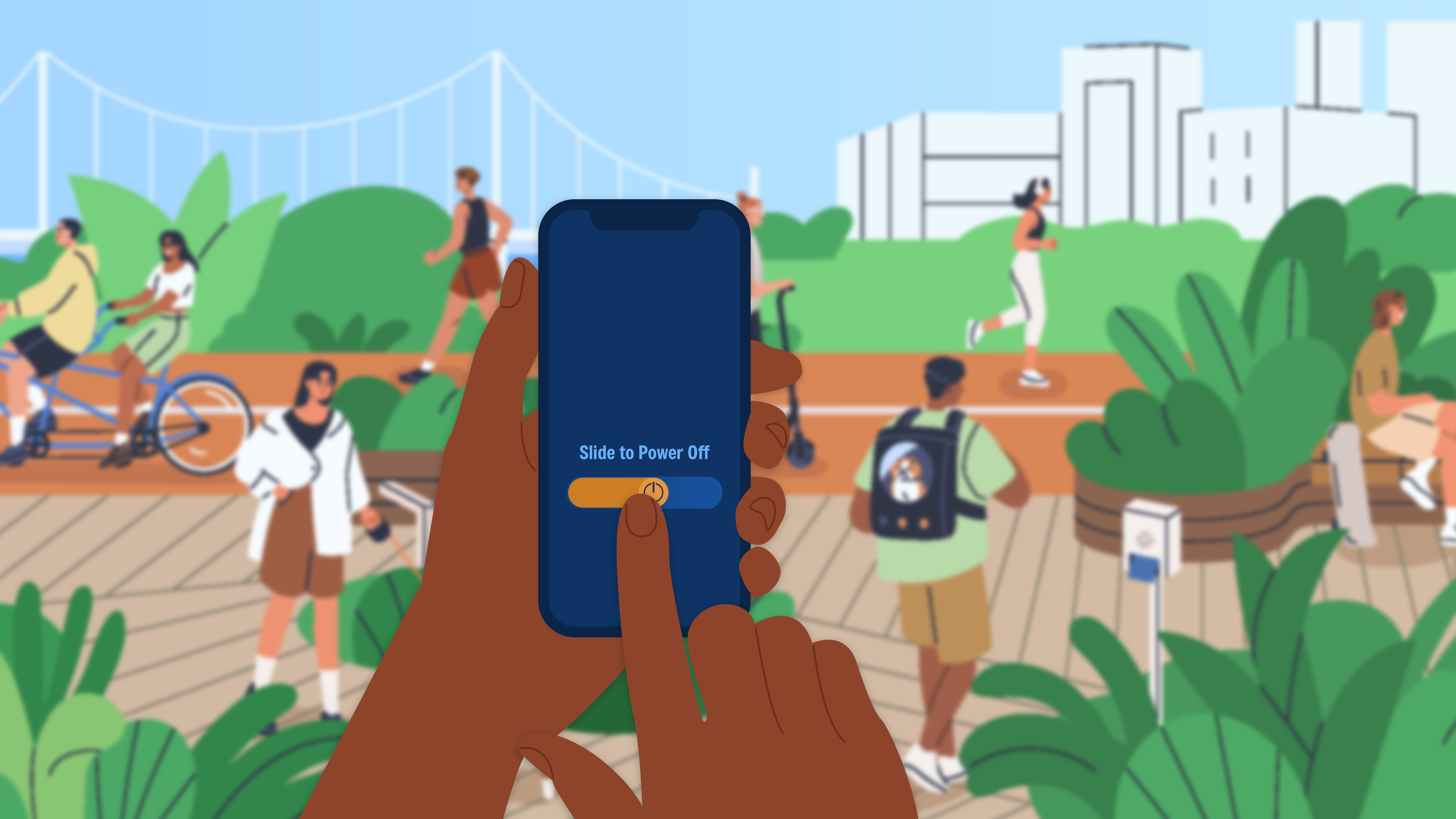Top U.S. Cities for a Digital Detox [2025 Study]

The Rise of Digital Detox Travel
As digital burnout becomes increasingly common, more travelers are seeking out experiences that allow them to disconnect from the constant stream of information and technology. This shift in preference has led to a growing demand for screen-free escapes, where individuals can focus on relaxation, nature, and personal well-being. According to a 2025 study, nearly one in four people is reducing their screen time during vacations, highlighting a clear trend toward digital detoxes.
With summer travel at its peak, finding a destination that supports unplugging without judgment has become essential. This study aimed to uncover the best cities in the U.S. for such an experience by analyzing 100 major cities based on 14 different factors that influence the ability to have a relaxing, digital-free stay. These factors included internet speed, 5G coverage, population density, access to off-the-grid accommodations, proximity to nature, and wellness opportunities.
Top U.S. Cities for a Digital Detox
The following cities stood out as ideal destinations for those looking to unplug:
1. Colorado Springs, Colorado
Colorado Springs ranked first due to its slower internet speed, scenic trails, and peaceful accommodations. With an average internet speed of 145 Mbps and 64% 5G coverage, it's a prime location for going offline. The city also offers 56 trail miles per 100,000 residents and 60 off-the-grid Airbnbs per 100,000 residents, making it a top choice for a restorative escape.
2. Boise, Idaho
Boise came in second with strong infrastructure and affordability. It has the fifth-lowest 5G coverage area in the study (34%) and ranks second-lowest for artificial brightness, which is great for stargazing and sleep quality. Boise also boasts 66 trail miles per 100,000 residents and affordable off-the-grid Airbnb stays.
3. Henderson, Nevada
Henderson secured the third spot thanks to low 5G coverage, abundant nature access, and excellent Airbnb value. It has 90 trail miles per 100,000 residents and an average Airbnb cost of $245.63, making it an affordable option for those looking to disconnect.
4. North Las Vegas, Nevada
Despite being close to Las Vegas, North Las Vegas made the top five due to its high parkland coverage, low 5G coverage, and inexpensive Airbnbs. Travelers can expect to pay just $206.30 per night for off-the-grid stays, with 188 listings per 100,000 residents.
5. Madison, Wisconsin
Madison combines Midwestern charm with mindful living. It has community gardens, off-the-grid Airbnb availability, and low light pollution. While its parkland coverage is slightly below average, it makes up for it with low internet speed and ample green space.
6. Lexington, Kentucky
Lexington offers a mix of off-the-grid Airbnb stays and walkable green spaces. With a low population density and relatively low levels of noise and light pollution, it provides a calmer environment for a digital detox.
7. Anchorage, Alaska
Anchorage is ideal for a true digital escape, with the slowest internet speed in the study (58 Mbps) and the lowest 5G coverage (10.4%). Its sparse population and natural beauty make it a perfect destination for solitude.
8. Aurora, Colorado
Aurora offers a combination of low internet speed and a high concentration of spas and wellness centers. With 60% 5G coverage and access to 38 trail miles per 100,000 residents, it’s a great place to unplug without sacrificing activities.
9. Reno, Nevada
Reno has strong digital detox credentials, including the third-slowest internet speed in the study (72.9 Mbps) and limited 5G coverage (29.6%). It also has 50 trail miles per 100,000 residents and a solid wellness scene.
10. Portland, Oregon
Portland strikes a thoughtful balance between urban life and digital detox. It has 9 community gardens per 100,000 residents and strong parkland coverage, with only 50% of the city having 5G coverage.
Worst U.S. Cities for a Digital Detox
Cities like Newark, New Jersey, and Chicago, Illinois, were among the worst for unplugging. High-speed internet, dense populations, and near-total 5G coverage keep travelers constantly connected. These cities lack the necessary conditions for a true digital detox, making them less ideal for those seeking a break from technology.
Best Cities for Specific Categories
While the top 10 cities offer a well-rounded mix of digital detox essentials, some standout destinations excel in specific categories. For example, Lubbock, Texas, leads the nation in off-the-grid Airbnb availability, while Tucson, Arizona, has ultra-low noise pollution and limited 5G coverage. Scottsdale, Arizona, boasts the highest parkland coverage and the most trail miles per 100,000 residents.
Where to Plan Your Next Digital Detox Vacation
For those interested in exploring the full ranking of the best places to take a digital detox, an interactive table has been compiled. This table allows users to search for their city or sort by category to discover where each city excels or falls short when it comes to unplugging.
Methodology
The study evaluated 100 top park cities in America from the Trust for Public Land on 14 different criteria that would impact a city’s ability to give someone a relaxing, digital-free stay. Factors were weighted based on their importance to a digital-less experience, with scores ranging from 0 to 5 and combined to reach a total score of 0 to 100.
Final Thoughts
As technology becomes more intertwined with daily life, the ability to truly unplug has become a luxury—something many travelers are actively seeking. The study highlights the best destinations in the U.S. for a digital detox, offering more than just a break from your inbox. These cities provide a full reset for those looking to reconnect with nature and themselves.
Post a Comment for "Top U.S. Cities for a Digital Detox [2025 Study]"
Post a Comment